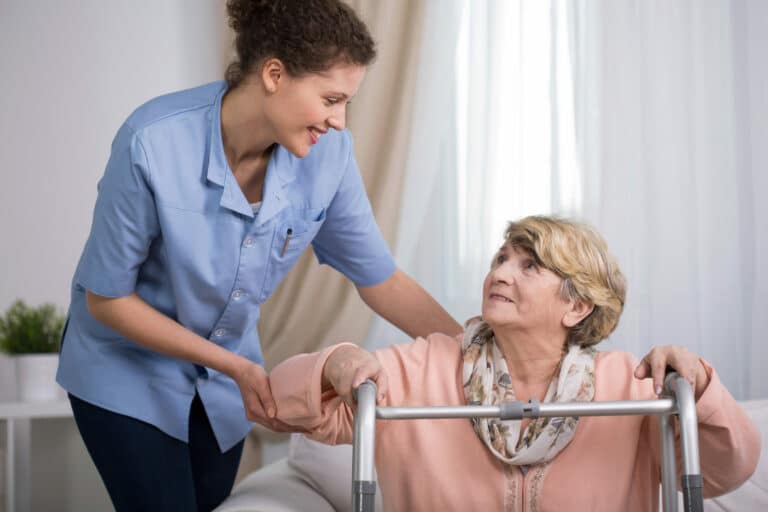If your aging loved one is dealing with a serious medical condition or diagnosis – such as cancer, Parkinson’s disease, or heart failure, you might have heard the words “palliative care” thrown around a bit.
Palliative care focuses on helping your loved one live more comfortably with whatever ailment he has. It does not
Companion Care at Home Anderson, SC: Seniors and Palliative Carereplace his regular care but instead adds to it by finding other ways to provide relief from the symptoms of his condition. A palliative care team will work with you and your loved one to prevent or ease suffering, improve the quality of life for both of you, and help your loved one and you make difficult health care decisions.
A palliative care team may include specialist nurses and doctors, social workers, religious or spiritual leaders, therapists, nutritionists, and your companion care at home team. It can be comprised of whomever you think can make life more comfortable for your loved one. It is not the same as hospice care, which occurs at the end of life when treatment has ended but instead can occur anytime someone has been diagnosed with a long-term chronic illness.
A palliative care team can help you travel the upcoming road by supporting you and your loved one in the following areas:
- Symptom Management. If your loved one has side effects from medication or symptoms from his disease that are interfering with his daily life, a palliative care team can look at different ways to manage those symptoms, and many times those techniques can be administered right at home from his companion care at home team. Your loved one might find massage is a great benefit for aches and pains, and a palliative care team can find someone to provide massages. Or they might come up with other symptom management such as diet and exercises.
- Support and Advice. A palliative care team is there to support you and your loved one as you try to make the best choices possible for care. They are a great resource for community support such as religious providers to help with spiritual concerns during this time.
- Care Techniques. A palliative care team may help your loved one receive care that his physician cannot provide such as music therapy, or healing touch. They may also be able to help with the stress that comes along with the current situation by providing yoga or meditation exercises.
- Relief for you. Being the caregiver of someone who is chronically ill can be exhausting. Your companion care at home team can give you respite when you need it so you can continue with more energy later.
The palliative care team works with your loved one’s physician and provides regular feedback to his doctor, as well as checks in to make sure what they’re doing is well-coordinated with the medical care your loved one is receiving from his doctor. They are an extra layer of support that complements your loved one’s ongoing care.
If you or an aging loved one are considering hiring Companion Care at Home in Anderson, SC, contact Heart of the Carolinas Home Care at 864-991-3116. Providing Home Care Services in Greenville, Simpsonville, Greer, Anderson, Spartanburg, Mauldin, Seneca, Laurens, Charleston, Columbia and the surrounding areas.
- Senior Home Care Makes It Easy For Seniors To Enjoy Healthy Meals - May 9, 2025
- Is it Possible to Prevent Family Caregiver Burnout? - April 25, 2025
- Home Care Assistance Helps Seniors After A Fall - April 9, 2025

